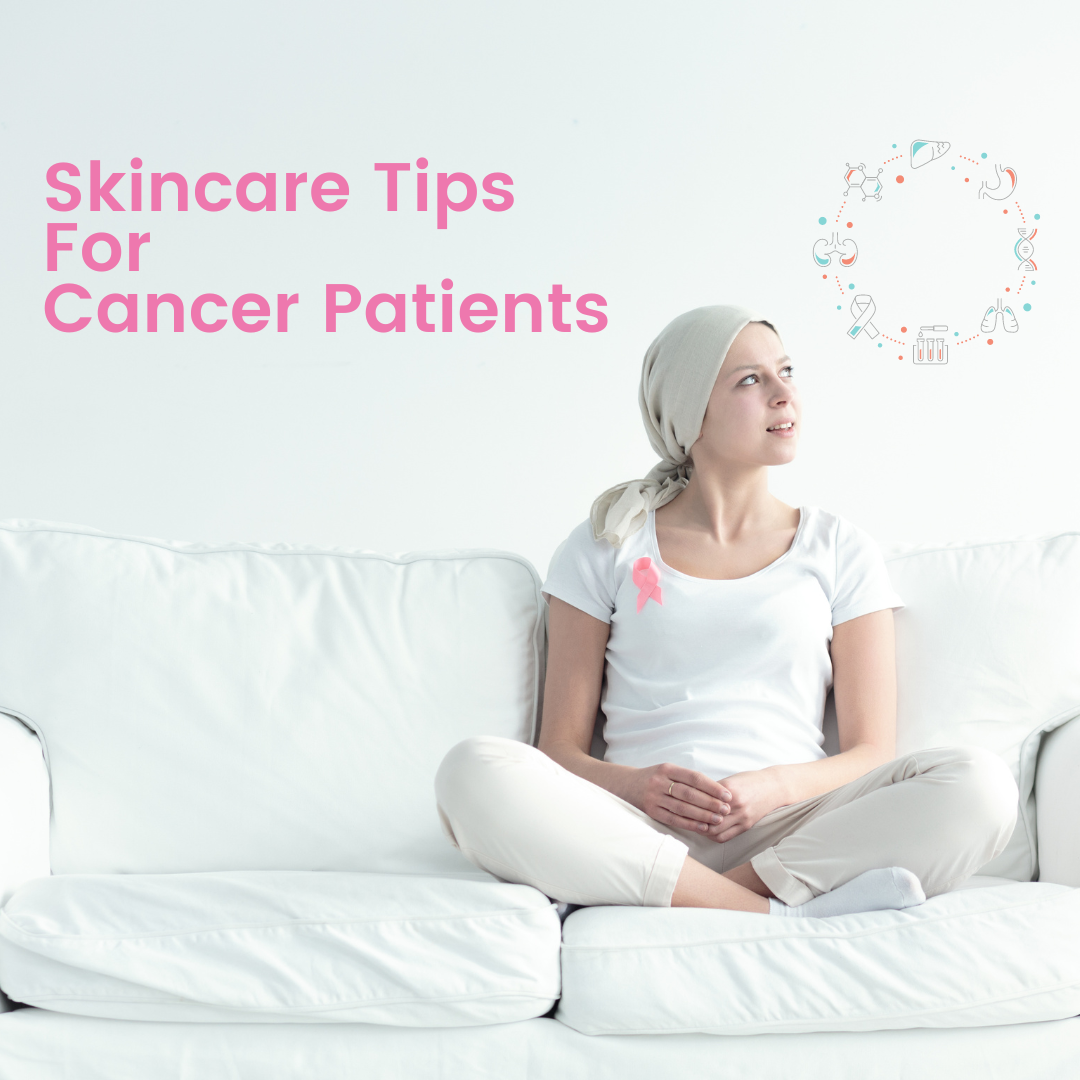
Nourish Your Skin: Essential Skincare Tips for Cancer Patients
Introduction
Embarking on a journey through cancer treatment is a profound challenge that affects all aspects of life, including skincare. For individuals undergoing chemotherapy or radiation therapy, the skin – the body's largest organ – often bears an unseen burden. This article delves into the specific skincare needs of cancer patients, offering insights and guidelines for maintaining skin health during these trying times.
Understanding the Skin's Battle: Effects of Chemotherapy and Radiation
The impact of cancer treatments like chemotherapy and radiation on skin health cannot be overstated. These powerful therapies, while targeting cancer cells, also inadvertently affect healthy skin cells. Chemotherapy drugs, known for their potency against cancer, can lead to a host of skin-related side effects such as dryness, hypersensitivity, and changes in pigmentation. Similarly, radiation therapy, despite its precision, often causes localized skin damage akin to a severe sunburn.
The epidermis, already engaged in a constant cycle of renewal and repair, is particularly vulnerable during these treatments. Patients may experience a range of skin issues, from mild irritation to more severe reactions like radiation dermatitis. Understanding these changes is crucial for developing an effective skincare routine tailored to the needs of cancer patients.
Choosing the Right Skincare Products
Navigating the world of skincare products can be daunting for cancer patients, as their skin becomes more sensitive and prone to reactions. The key is to look for products specifically formulated for sensitive or compromised skin – typically, these are free from harsh chemicals, fragrances, and allergens.
Products rich in hyaluronic acid, ceramides, and gentle, natural oils can be beneficial in maintaining the skin's moisture barrier. Conversely, ingredients like alcohol, synthetic fragrances, and certain preservatives, which can further irritate or dry out the skin, should be avoided. It's also advisable to consult with a dermatologist or oncology skincare specialist who can recommend products that are both safe and effective for cancer patients' unique skincare needs.
Managing Skin Reactions to Radiation Therapy
Radiation therapy, while an effective cancer treatment, often leads to acute skin reactions. These reactions, ranging from redness and itching to peeling and blistering, necessitate a specialized skincare approach. The first line of defense is gentle cleansing – using lukewarm water and mild, soap-free cleansers to avoid further irritation.
Moisturizing is equally critical. Applying a hypoallergenic, non-irritating moisturizer immediately after bathing can help soothe and protect the skin. For areas receiving radiation, using a prescribed topical steroid cream or aloe vera-based products can provide relief from inflammation and discomfort.
Additionally, protecting the skin from the sun is vital, as radiation therapy can increase photosensitivity. Wearing protective clothing and applying a broad-spectrum sunscreen with a high SPF can help shield the skin from harmful UV rays.
Post-Treatment Skincare: Healing and Maintenance
Post-cancer treatment marks a new phase in a patient's journey, where skin care plays a pivotal role in healing and restoring skin health. After completing chemotherapy or radiation therapy, the skin often requires extra attention to recover from the rigors of treatment.
Hydration emerges as a cornerstone of post-treatment skincare. Products rich in hydrating ingredients like glycerin, hyaluronic acid, and natural oils help replenish moisture and repair the skin's natural barrier. It’s also essential to continue using gentle, non-irritating products to support the skin's gradual return to its pre-treatment state.
In this phase, the focus shifts to nurturing and maintaining the skin’s resilience. Antioxidant-rich creams and serums can aid in combating free radical damage, while products with peptides may support skin repair and renewal. Regular consultation with skincare professionals remains important, as they can provide guidance tailored to the evolving needs of the skin post-treatment.
Natural and Sensitive Skin Solutions
For cancer patients, particularly those with inherently sensitive skin, natural skincare solutions often provide a soothing alternative to conventional products. Ingredients derived from nature – such as aloe vera, chamomile, and oatmeal – are known for their calming and healing properties. These ingredients can be especially beneficial in alleviating irritation and redness associated with cancer treatments.
It's important to note, however, that "natural" doesn't always mean "safe" for every individual. Patients should be mindful of any personal allergies and should opt for products that are free from common irritants. As always, testing any new product on a small skin area before full application is a wise practice.
Incorporating gentle, non-abrasive exfoliants can also help in removing dead skin cells and promoting a healthy skin texture. Products with mild exfoliating acids like lactic or mandelic acid can be considered, provided they do not cause irritation.
Final Recommendations and Key Takeaways
Cancer treatment is a challenging journey, and managing its effects on the skin is an important aspect of patient care. Here are five key takeaways for those seeking succinct, essential advice:
- Prioritize Gentle Skincare: Opt for hypoallergenic, fragrance-free products that soothe and hydrate the skin.
- Stay Hydrated: Regularly moisturize to help maintain the skin's natural barrier, especially after bathing.
- Sun Protection is Crucial: Protect the skin from UV rays with high SPF sunscreen and protective clothing, especially post-radiation.
- Consult Healthcare Professionals: Regularly seek advice from dermatologists or oncology skincare specialists for personalized care.
- Natural Doesn't Mean Risk-Free: Be mindful of allergies and skin reactions even when using natural skincare products.

